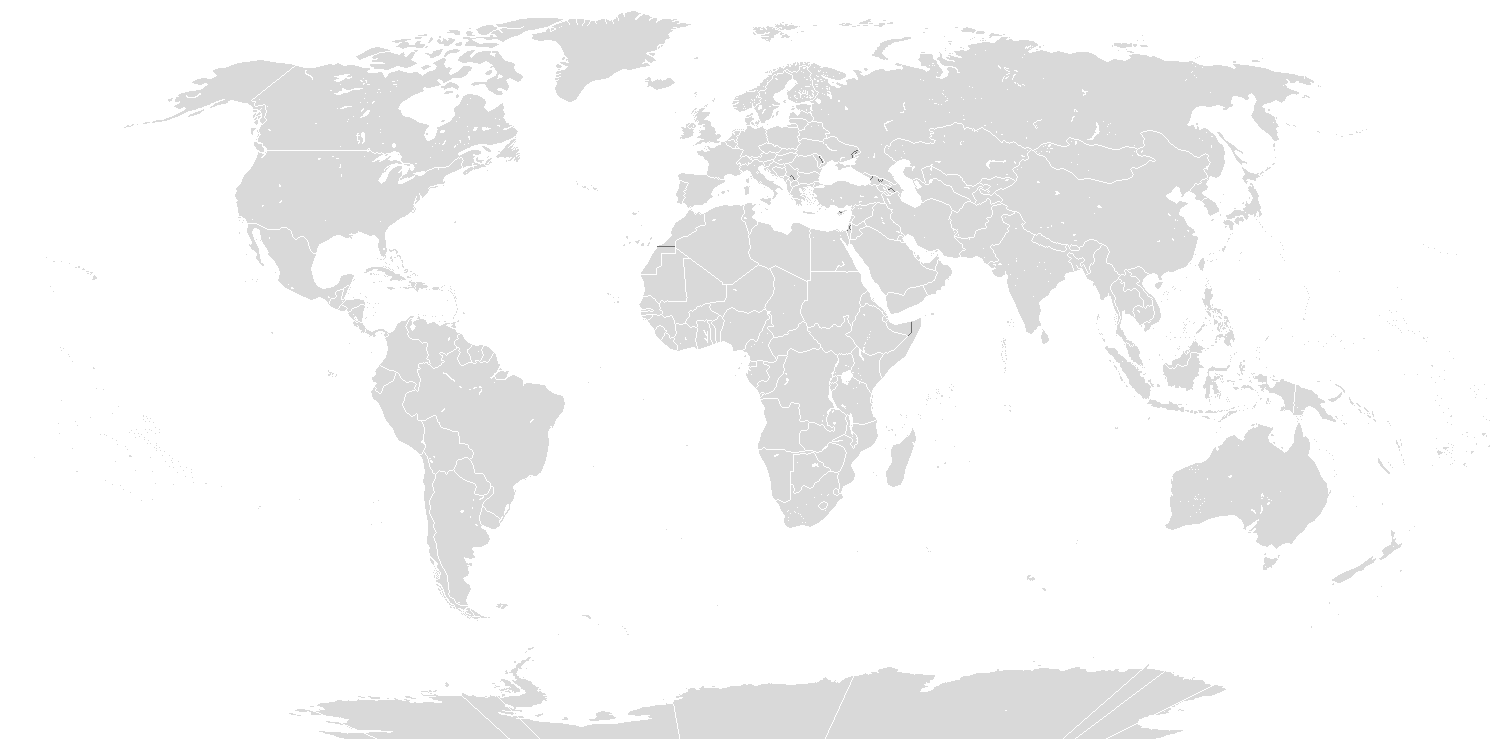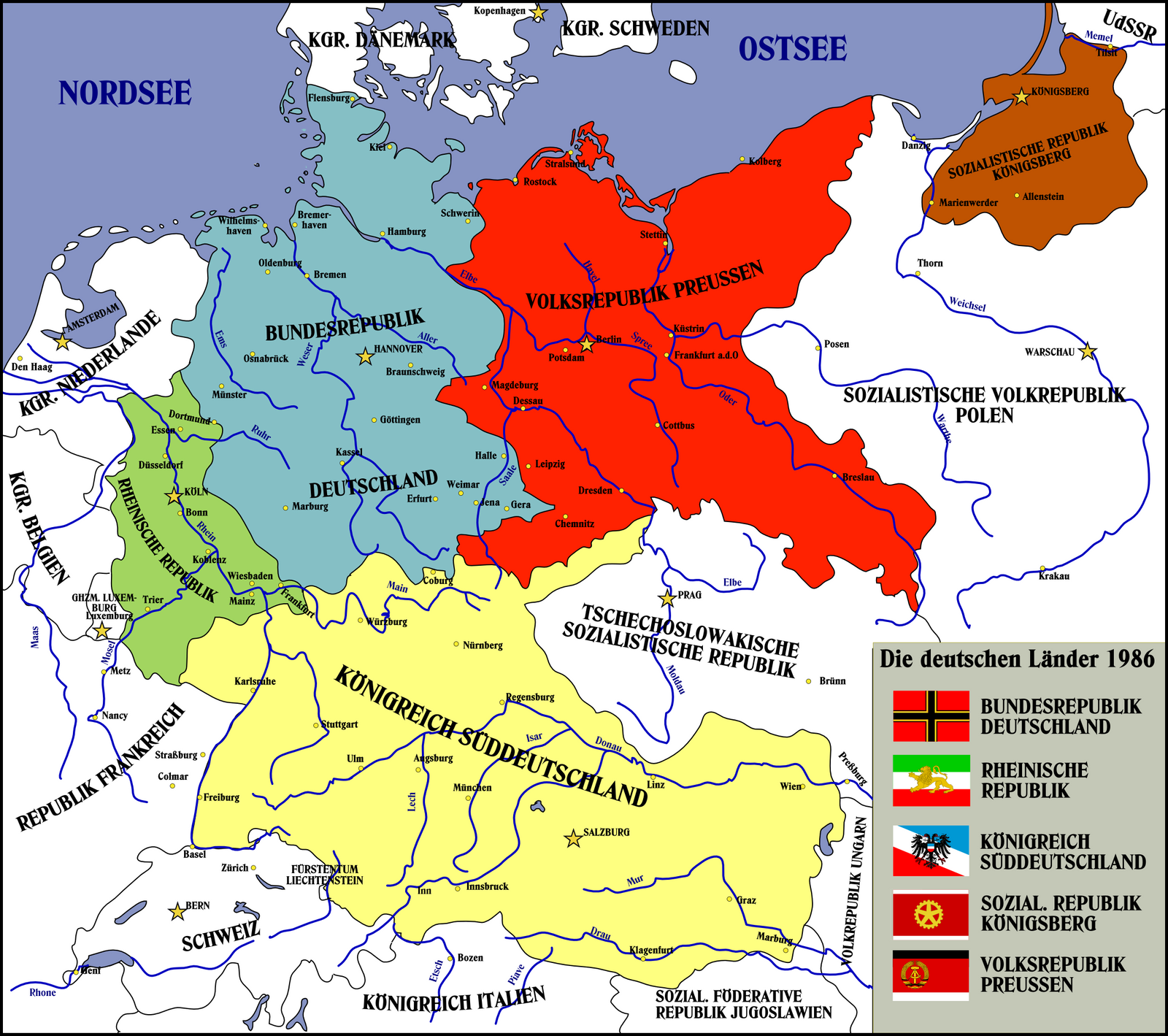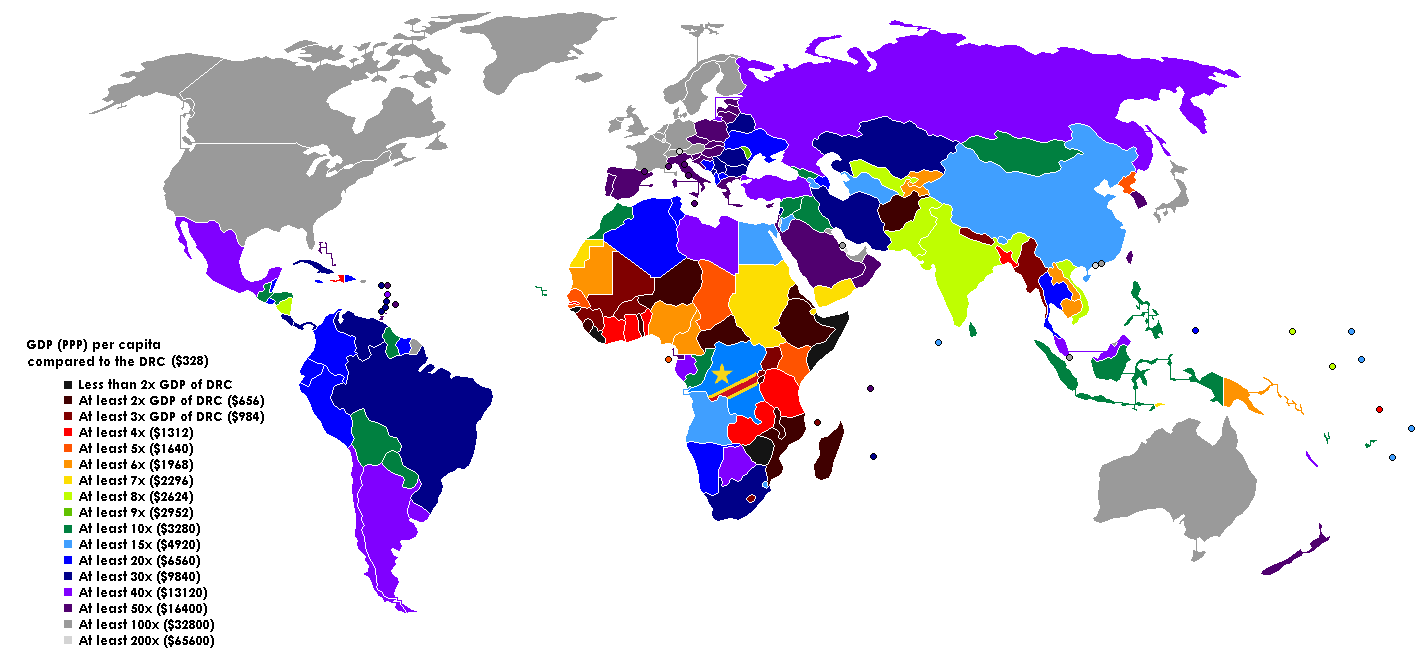You are using an out of date browser. It may not display this or other websites correctly.
You should upgrade or use an alternative browser.
You should upgrade or use an alternative browser.
Altered Maps 4: Partitioning Eastern Europe Like In The Good Old Days
- Thread starter holy king
- Start date
- Status
- Not open for further replies.
holy king
Deity
Tani Coyote
Son of Huehuecoyotl
- Joined
- May 28, 2007
- Messages
- 15,195
Excellent! Yet another thread started by messing up the timeline! It's Red Alert 4! 
And since this is a new thread, I'll make my first post in it a map from my EU3 game as of the year 1456. While the Byzantine Empire died several decades ago, it was the Ottoman Empire which perished around 1453 this time around. They've been reduced to a single province in southeast Asia Minor.
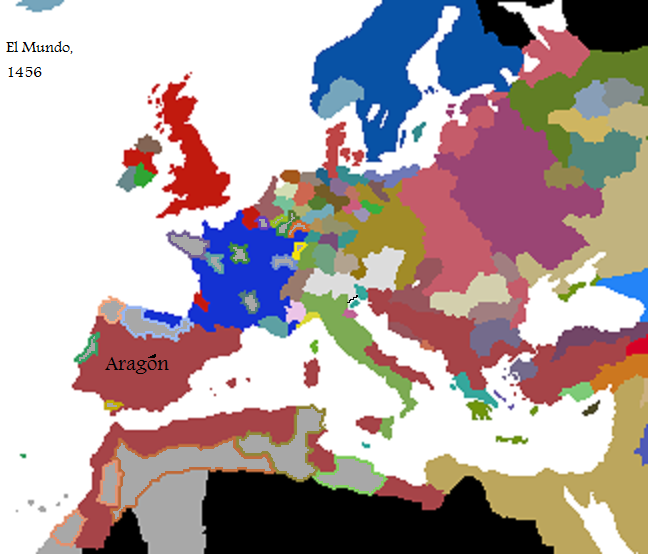
I'll see you all in about 30-50 years, I need to make sure to use these EU3 maps sparingly to avoid a ban on them.
Any questions and comments are welcome. If you'd prefer to not fill up this thread with them, however, you can visit the AAR/Story this map is attached to at http://forums.civfanatics.com/showthread.php?t=329824&page=2 and submit your questions/comments there.

And since this is a new thread, I'll make my first post in it a map from my EU3 game as of the year 1456. While the Byzantine Empire died several decades ago, it was the Ottoman Empire which perished around 1453 this time around. They've been reduced to a single province in southeast Asia Minor.

I'll see you all in about 30-50 years, I need to make sure to use these EU3 maps sparingly to avoid a ban on them.

Any questions and comments are welcome. If you'd prefer to not fill up this thread with them, however, you can visit the AAR/Story this map is attached to at http://forums.civfanatics.com/showthread.php?t=329824&page=2 and submit your questions/comments there.

TheLastOne36
Deity
- Joined
- Jan 17, 2007
- Messages
- 14,045
You know with the server update, you don't need to make new threads when it reaches 50 pages. They can go on forever now.
Gooblah
Heh...
- Joined
- Jun 5, 2007
- Messages
- 4,282
You know with the server update, you don't need to make new threads when it reaches 50 pages. They can go on forever now.
It's 1000 posts, right?
I think it's reached the status of tradition.
*pauses, looks at post*
Dangit, Choxorn!

RedRalph
Deity
- Joined
- Jun 12, 2007
- Messages
- 20,708
Gooblah
Heh...
- Joined
- Jun 5, 2007
- Messages
- 4,282
Series of maps depicting an alternative history of the Quit India movement and the subsequent polarization and militarization of South Asia:
1957
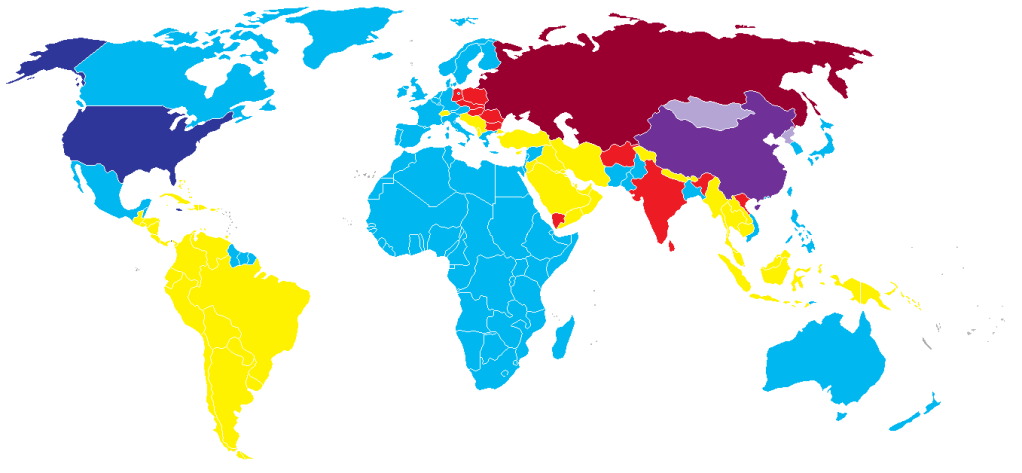
1958
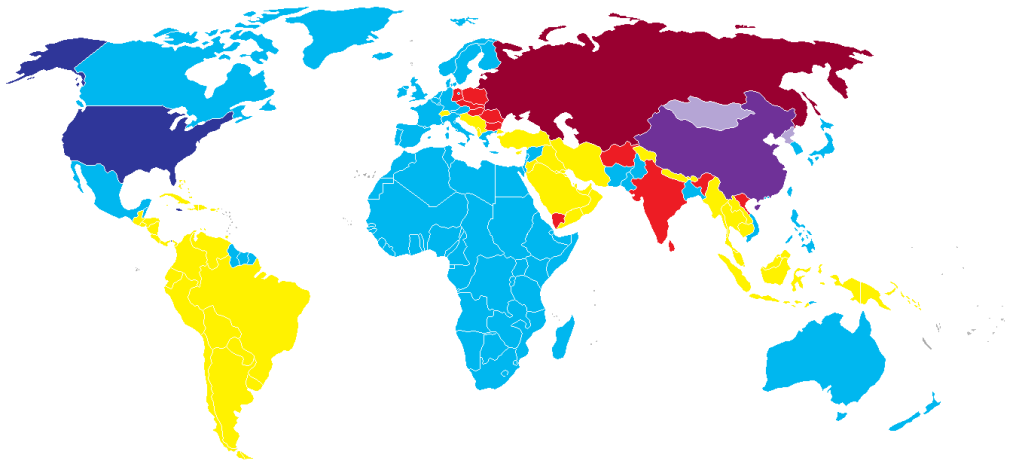
1959-1961
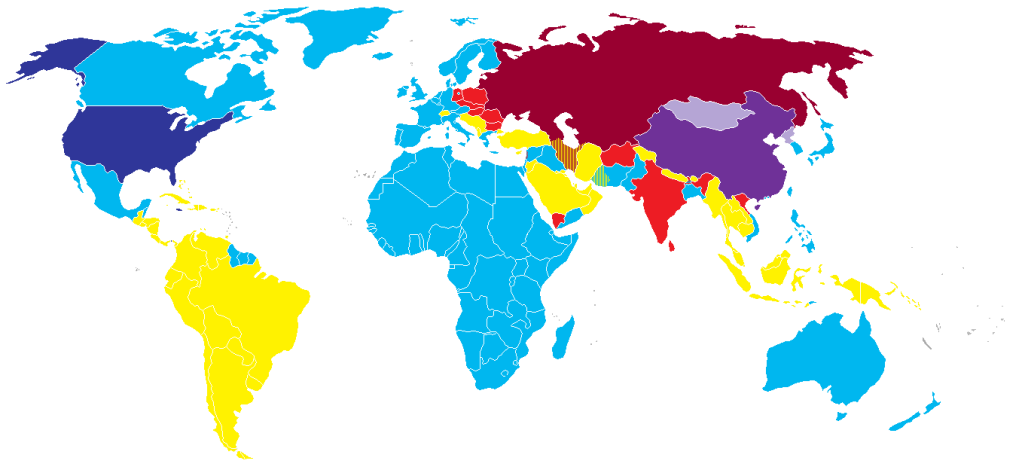
Gandhi is shot by a overeager redcoat, not a radical Hindu. Basically, Pakistan crumbles into ethnic provinces; in the turmoil, Bengalis join forces to create a larger Bangladesh. Kashmir remains independent and India becomes militarized. The Iranian Revolution occurs much earlier, and the USSR pushes through to gain some Gulf Coast; India becomes fully aligned with the USSR instead of becoming the leader of the non-aligned movement, due to anger directed at the west for not helping them. It allies with the Pushtuns, while the Baluchis, Bengalis, and Punjabis form a pact with the US to curb growing Indian power. Kashmir takes the mantle of the Non-Aligned movement instead, a position joined by Iran, which is faced with growing American and Russian influence to sway either side. Eventually, Kurdish and Baluchi agitations with the country rent it in two, with the Baluchis joining their brothers and the Kurds forming an independent Soviet-aligned nation.
Completely ahistorical and nonsensical, I know.
Spoiler :
1957

1958

1959-1961

Gandhi is shot by a overeager redcoat, not a radical Hindu. Basically, Pakistan crumbles into ethnic provinces; in the turmoil, Bengalis join forces to create a larger Bangladesh. Kashmir remains independent and India becomes militarized. The Iranian Revolution occurs much earlier, and the USSR pushes through to gain some Gulf Coast; India becomes fully aligned with the USSR instead of becoming the leader of the non-aligned movement, due to anger directed at the west for not helping them. It allies with the Pushtuns, while the Baluchis, Bengalis, and Punjabis form a pact with the US to curb growing Indian power. Kashmir takes the mantle of the Non-Aligned movement instead, a position joined by Iran, which is faced with growing American and Russian influence to sway either side. Eventually, Kurdish and Baluchi agitations with the country rent it in two, with the Baluchis joining their brothers and the Kurds forming an independent Soviet-aligned nation.
Completely ahistorical and nonsensical, I know.
Huayna Capac357
Deity
This is the HDI map, statistical update 2008. But in quintiles (top 20% of countries, blue, next 20%, green, then yellow, orange, red)
Made by me. In GIMP.
Made by me. In GIMP.
Huayna Capac357
Deity
How do you have -5% 

Godwynn
March to the Sea
- Joined
- May 17, 2003
- Messages
- 20,524
How do you have -5%
It's easy to have -5% speakers of German if the percent of speakers in that country is 4%, 3%, 2%, 1%, or 0%...
Huayna Capac357
Deity
Oh. I thought you meant negative 5 

Moderator Action: Discussion of various computer games removed.
Mad Man
Your lord and master
Huayna Capac357
Deity
I would subtract Burma from China and add Vietnam to China. I would then add Burma to Siam.
- Status
- Not open for further replies.
Similar threads
- Replies
- 559
- Views
- 29K
- Replies
- 4
- Views
- 649
- Replies
- 64
- Views
- 7K


























